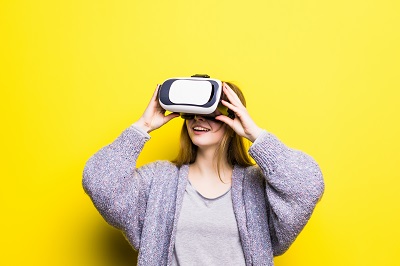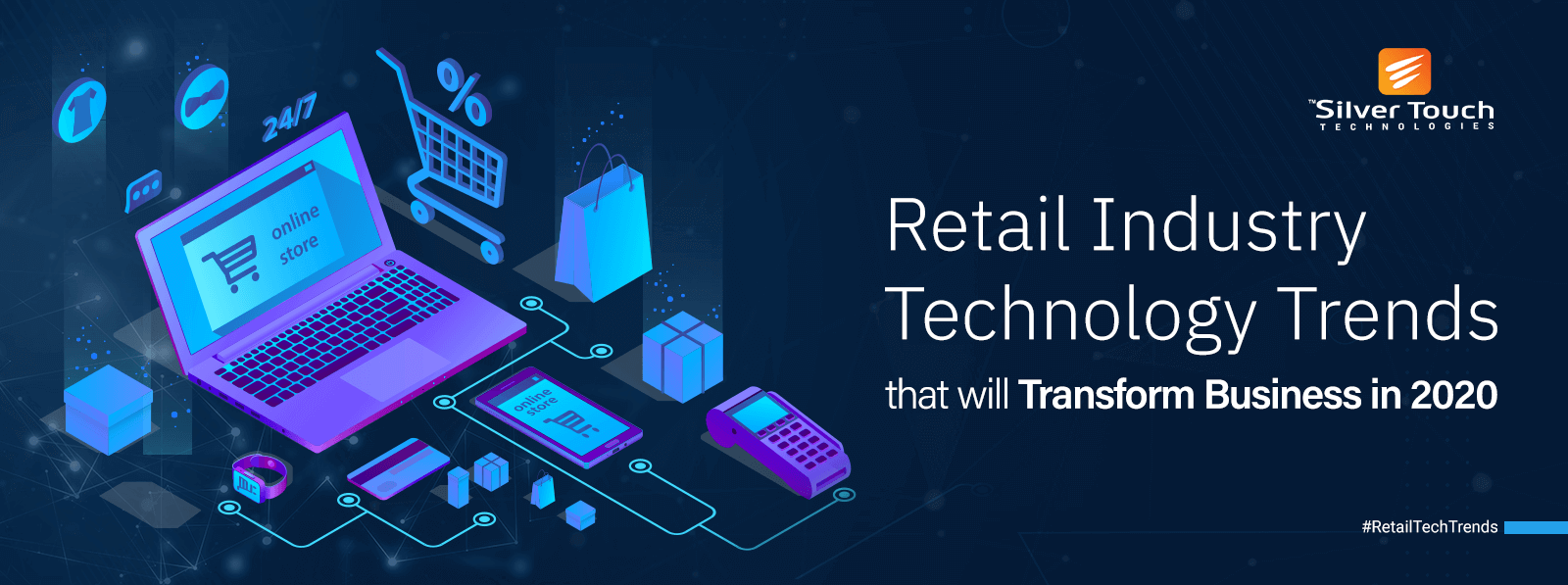Technology has made it possible to carry the world’s largest marketplaces in your smartphones! Yes, today, we can purchase anytime and anywhere thanks to the thriving mobile app domain. Giant retailers like Walmart, Amazon, and Alibaba have set new milestones by bringing their retail model into the mobile platform in line with the changing expectations of their customers.
Globally, retailers focus on leveraging the benefits of technological advancements with the help of custom software development. Though the retail sector growth is expected to be halved due to the COVID-19 outbreak, we are certain that adoption of technological advancements will help the sector thrive for a long time.
Here we are going to see the top seven retail technology trends that are set to change the face of industry in upcoming years and beyond. These trends are emerging as ‘pandemic-proof’ trends and capable of helping the retail sector to transform digitally over the period.
1. Fully-integrated POS
One of the biggest challenges eCommerce retailers face in this pandemic age is to optimize online sales process in line with increased demand. There, an integrated POS and eCommerce solution comes into the picture. Retailers need to think about the post-pandemic period. It will be necessary for them to sync online shop and a brick-and-mortar store regarding transactions, sales, inventory, and promotional campaigns. Integrated POS solutions can help them look after multiple sales channels and give customers seamless shopping experience across multiple platforms.
2. Augmented Shopping

Image Source: freepik.com
Gartner has rightly predicted in its 2019 report that up to 100 million consumers will use Augmented Reality technology in their shopping. In this quarantine period, the demand for virtual fitting rooms is increasing rapidly. Retailers, while implementing the ‘try-before-you-buy’ approach, offer augmented shopping facility within the app to attract more customers. This feature enables customers to interact with products easily and find out how clothes will look like online. Some of the top brands like Lacoste and American Apparel have already opened virtual showrooms and fitting rooms to give customers virtual spaces.
Apple has introduced a LIDAR scanner to leverage the potential of AR and augmented shopping.
3. ML for Demand Predictions
The corona age has brought drastic changes in our lifestyle and consumer behaviors or shopping patterns. It is difficult to predict the trend once the pandemic will over. Though retailers have already started relying on big data, the next big thing machine learning will become an innovative way for customer-supplier relationship management. ML technology will be extensively used to identify demands in advance and run a smart marketing campaign.
IT service providers will make ML-based demand prediction solutions using NLP and cascade models. Big data will assist these ML solutions to forecast demands more accurately.
Also Read- How to Convert Your E-Commerce Store into M-Commerce App
4. Personal Interaction
The custom software development process will merge data science and ML technologies to build personalization tools for making personal recommendations and giving necessary information to customers before they buy particular products. Amazon’s recommendation engine accounts for 35% of its sales, and in the future, other retailers will follow suit.
The recommendation engine uses incentives based on consumer expectations and requirements. Good thing is it does not need any app to fetch this data. The good thing is it does not need an app to fetch this data. The engine collects information about similar types of customers by using ML-based methods and develops shopping personas. Then the system contacts specific users. With this, beacons and BLE technologies will also help retailers by targeting people who are in the vicinity of their brick-and-mortar stores.
5. Help Yourself
Social distancing has become a new norm these days. It has made cashier-less and staff-free stores a reality in the retail ecosystem. A survey on changing shopping habits during the COVID-19 pandemic has revealed that 87% of customers prefer stores with contactless or self-checkout options. RFID tags, ML, connected devices, sensors, and computer vision systems can sufficiently implement the ‘Help Yourself’ concept in retail stores. Amazon Go Grocery model is an example of this approach. It includes RFID, Bluetooth, and other related technologies to provide check-out free shopping experience.
6. Voice Commerce
AI and NLP are getting mainstreamed quickly in various industry sectors, and the retail industry is no exception. Very few people have not heard about Alexa and Siri today. There is no exaggeration in mentioning that voice assistant will become a game-changer for modern businesses over the period. Talking about the retail and eCommerce sectors, voice-assisted technologies can help retailers make sales. It is called voice commerce and it works based on the customer’s voice commands to find products or get the necessary information.
7. Rise of Robots
Robots have already taken tasks like cleaning, tracking, and inventory analysis from humans. Retailers expect that robots will help them reduce costs and improve operations by combining with AI (Artificial Intelligence). Amazon Scout is an autonomous robot useful for last-mile delivery to the customer’s doorstep. Shelf auditing robots can scan shelves for managing inventory and monitor the pricing of various products in the brick-and-mortar store or warehouses.
Some in-store robots like Lowebot are busy in customer services by giving personalized answers to questions and helping customers to find products. Safety robots ensure the security of retail premises and send real-time safety alerts.
Concluding Lines
These digital transformation trends for the retail sector are here to stay. Irrespective of challenges and hurdles brought by the COVID-19 pandemic, these trends will certainly assist the retail sector to survive this troubled time and thrive again with double force. This pandemic age is an opportunity for many brick-and-mortar retailers to embrace technological advancements. If you want to stay ahead of your peers, the right time is now! Just meet the software development consultant and boost your retail business.
Silver Touch is a leading IT solutions provider. Our in-house teams of experienced developers have successfully delivered high-end solutions in the domains of software development, mobile app development, eCommerce development, CMS development, and web development. We integrate advancements of emerging technologies to come up with customized, enterprise-grade solutions. We also offer ODC (Offshore Development Center) facility to deliver the best-in-class solutions at competitive rates.
Do you want to give your business a competitive edge while making it ready to face the challenges? Simply send us an email at info@silvertouch.com and make the most of advancing technology for your enterprise!

